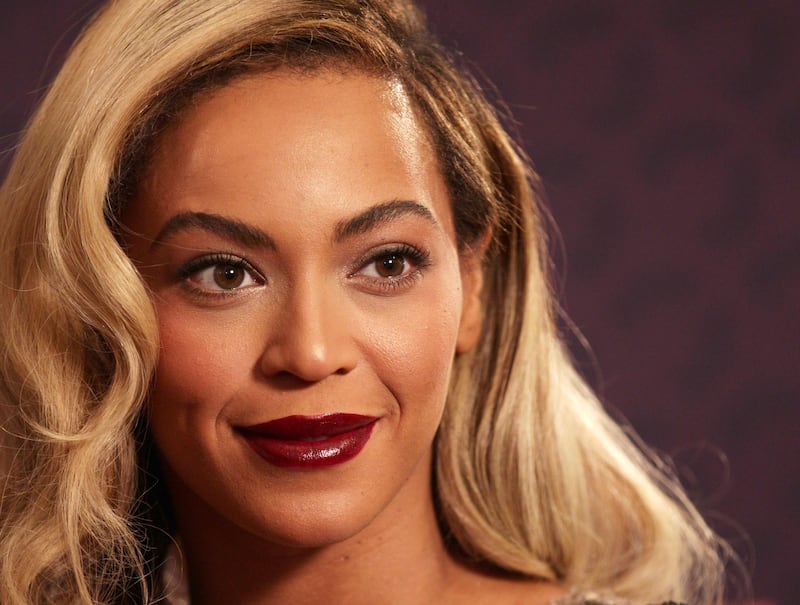Beyoncé Knowles-Carter has shared a video of herself doing her wash day routine after recently retouching her natural hair, which has mostly been blonde throughout her career.
In the video, the 42-year-old Texas Hold ‘Em singer can be seen using products from her haircare line Cécred, which she launched earlier this year in February.
The brand offers a variety of products, including hydrating shampoo, a two-step fermented rice and rose protein ritual, moisturising deep conditioner, moisture sealing lotion and nourishing hair oil, which the singer-songwriter is seen using in her Instagram post.
“Now that Cécred is known for the quality and what it does for your hair, I think it’s about time I show y’all what it does for my hair,” she said at the start of the video.
The caption read: “It has been such a special experience seeing all of your #cecredwashday rituals all over my timeline… I just had to join in with something I had in the archives.
“Being disruptive and challenging everything people feel should be the process has always been exciting to me. My hair and music seemed to do that a lot over the years…
“Maintaining 25 years of blonde on natural hair through all the experimenting I do has played a huge part in developing @cecred’s products. It’s the hardest to keep colour-treated hair healthy and strong, but @cecred is here. All quality, with NO shortcuts.
“Congratulations to the entire CÉCRED team for contributing to developing award-winning products. 💕
“Happy #cecredwashday! You are CÉCRED.”
So, what is the best way to maintain blonde hair on natural afro hair? A hair expert shares everything you need to know…
Have regular treatments

Derrick Mullings – a hairstylist at Suave Living, a hair salon based in west Croydon – says if you bleach afro hair (which has a natural curl pattern in comparison to European hair) too much, or fail to take care of it properly, it can end up damaged.
“Have regular treatments,” said Mullings. “Preferably moisturising treatments, as bleaching can be quite drying to the hair. This helps to maintain the hair elasticity so it doesn’t break.
“But if you suffer from any breakage from bleaching, you will need a reconstruction treatment, like a protein treatment, to strengthen the hair.”
Have regular trims
Getting regular trims isn’t always a priority for people, but getting into a routine can do wonders for the health and length of your hair.
“Have regular trims, as the ends of your hair can be very brittle. This is what will help keep your hair in a better condition,” said Mullings. “Each time you have it bleached (or died blonde), you should have it trimmed, between every six to 12 weeks – even when you have retouched too.”
Don’t bleach too close to the roots
According to Mullings, who has over 30 years of experience, it’s best to focus on the mid-length and ends of your hair when bleaching.
“This is because we produce more body heat from the scalp, so applying it close to there will cause the hair to lighten more quickly,” he explained, stressing the importance of having a professional manage the maintenance of bleached hair.
“This will ensure that you have more correct and even colour application,” Mullings added. “Also, use professionally recommended products and avoid using some of the bleaches that are sold in high street shops.”
Use less heat
Mullings also suggested trying to “use less heat application” during styling. “If you use excessive amounts of heat, it could damage the natural porosity – how well the hair will absorb moisture – of the hair.”
Avoid high-lift bleaching
People who have bleached afro hair should also avoid extreme high-lift bleaching, added Mullings.
“This is when you can find up to 6% peroxide in the bleach, but the slower the process. the better it is for the health of the hair. The ones that work quicker can be more damaging.”
Don’t bleach too often
Even if you’re trying to maintain the health of your blonde hair, it’s still possible to overdo it with the bleach.
“It all depends on the length of your hair. If it’s a short-cropped style, then every six to eight weeks is ideal because you can do it more often as you will be having regular cuts,” said Mullings.
“But for longer hair, you should only do touch-ups on the roots and not the ends. This should be on average every three to six months.”
Look after your hair under wigs
“Some people may bleach their hair to match – especially around the hairline – when wearing wigs and other protective styles. It’s safe to bleach your hair for that, but you also need to make sure you condition the hair very well and maintain your hair under the wigs,” said Mullings.
Protect your hair for bed
If you have afro hair, going to bed without protecting it can lead to breakage over time, or just increase the time you would need to spend on it the following morning.
“Make sure you use a night-time treatment if you can, this is a moisture-based and leave-in conditioner to keep your hair as moist as possible,” said Mullings. “You can use a silk scarf and bonnet to protect it. You need as much moisture in your hair as possible.”








